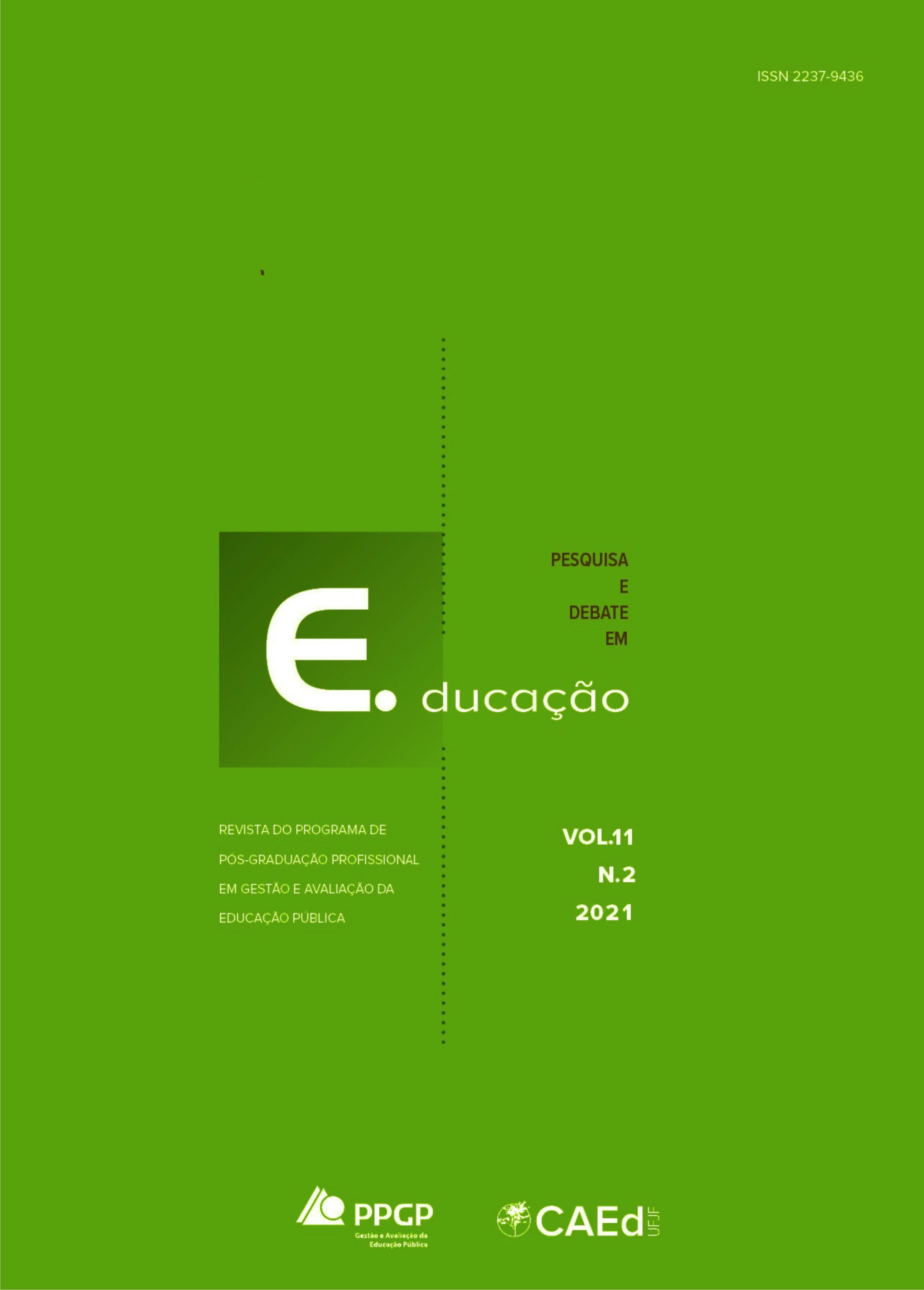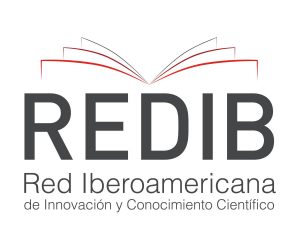Teacher training and educational inclusion
reflections on short-term in-service training on neurosciences
DOI:
https://doi.org/10.34019/2237-9444.2021.v11.31856Keywords:
Teacher training, Educational inclusion, NeurosciencesAbstract
This text presents some considerations on inclusion and teacher training. It also describes the results of a small-scale study developed at a public elementary school, where six four-hour workshops on brain functioning were implemented: disability (physical, hearing, visual, intellectual), Global Developmental Delay and Giftedness. The workshops were designed to train teachers and inclusion assistants and had the contributions of the NeuroEduca Project Medical students. Topics were discussed from a neuroscientific perspective and on how the learning process occurs for pupils with educational needs. About 15 educators participated in these workshops that were deemed invaluable and unprecedented, despite its short term duration. It was an opportunity to reflect on practice and educational inclusion.
Downloads
References
ADEY, Phillip; SHAYER, Michael. Really raising standards: cognitive intervention and academic achievement. London: Routledge, 1994.
BERLUCCHI, Giovanni; BUCHTEL, Henry. Neuronal plasticity: historical roots and evolution of meaning. Experimental Brain Research. v. 192, p. 307-319, jan. 2009. Disponível em: https://doi.org/10.1007/s00221-008-1611-6. Acesso em: 13 maio 2019.
BRASIL. Lei nº 13.146, de 6 de julho de 2015. Institui a Lei Brasileira de Inclusão da Pessoa com Deficiência (Estatuto da Pessoa com Deficiência). Brasília. Disponível em: http://www.planalto.gov.br/ccivil_03/_ato2015-2018/2015/lei/l13146.htm. Acesso em: 10 jun. 2019.
BRASIL. Estatuto da Criança e do Adolescente. Lei Federal nº 8069, de 13 de julho de 1990. Índice elaborado por Edson Seda. Curitiba: Governo do Estado do Paraná, 1990.
BRASIL. Lei nº 8.069, de 13 de julho de 1990. Dispõe sobre o Estatuto da Criança e do Adolescente e dá outras providências. Diário Oficial [da] União, Poder Executivo, Brasília, DF, 16 de jul. 1990.
BRASIL. Lei 10.172, de 9 de janeiro de 2001. Aprova o Plano Nacional de Educação e dá outras providencias. Diário Oficial da União. Brasília, DF, 10 jan. 2001.
BRASIL. Lei nº 9.394, de 20 de dezembro de 1996. Lei de Diretrizes e Bases da Educação Nacional (LDBEN). Estabelece as diretrizes e bases da educação nacional. Brasília: MEC, 1996.
CARVALHO, Ana Cláudia Silva; TEIXEIRA, Selena; NEGREIROS, Fauston. Entre o discurso e a ação: a inclusão escolar sob a ótica dos professores do Piauí. In: Anais da Semana da Pesquisa Científica, n. 8, Teresina, 2010.
COLE, Ted. The history of special education. British Journal of Special Education, v. 17, n. 3, p. 101-08, 1990.
COSENZA, Ramon; GUERRA, Leonor. Neurociência e educação: como o cérebro aprende. Porto Alegre: Artmed, 2011.
EWALD, François. Foucault, a norma e o direito. 2ª ed. Lisboa: Vega, 2000.
FLAVELL, John. Metacognitive aspects of problem-solving. In: RESNICK, Lauren (Ed.). The nature of intelligence. Hillsdale, NJ: Erlbaum Assoc, p. 231-235, 1976.
FORREST-PRESSLEY, Donna-Lynn; MACKINNON, George; WALLER, Thomas Gary. Metacognition, cognition, and human performance. Orlando: Academic Press. 1985.
HOWEY, Kenneth. Six major functions of staff development: an expanded imperative. Journal of Teacher Education, v. 36, n. 1, p. 58-64, 2009.
LEONARDO, Nilza; BRAY, Cristiane; ROSSATO, Solange. Inclusão escolar: um estudo acerca da implantação da proposta em escolas de ensino básico. Revista Brasileira de Educação Especial, Marília, v.15, n.2, maio-ago., p. 289-306, 2009.
LIBÂNEO, José Carlos. A organização e a gestão da escola: teoria e prática. Goiânia: Alterntiva, 2004.
LOCKMANN, Kamila. Medicina e inclusão escolar: estratégias biopolíticas de gerenciamento do risco. In: FABRIS, Elí Henn; KLEIN, Rejane Ramos (orgs.). Inclusão e biopolítica. São Paulo: Autêntica Editora, p. 129‐146, 2013.
VEIGA-NETO, Alfredo; LOPES, Maura Corcini. Para pensar de outros modos a modernidade pedagógica. ETD – Educação Temática Digital, Campinas, v. 12, n. 1, p. 147‐166, 2010.
MARZANO, Robert. Cognitive, metacognitive, and conative considerations in classroom assessment. In: LAMBERT, Nadine; MCCOMBS, Barbara (Eds.). How students learn: reforming schools through learner-centered education. Washington, DC: American Psychological Association, p. 241-266, 1998.
NÓVOA, Antônio (org.) Os professores e a sua formação. Lisboa: Dom Quixote, 1995.
OECD - ORGANISATION FOR ECONOMIC CO-OPERATION AND DEVELOPMENT. Understanding the brain: towards a new learning science. Paris: OECD Publications Service, 2002.
OLIVEIRA, Gilberto Gonçalves de. Neurociências e os processos educativos: um saber necessário na formação de professores. 147 f. 2011. Dissertação (Mestrado em Educação), Universidade de Uberaba, Uberaba, 2011. Disponível em: https://www.uniube.br/biblioteca/novo/base/teses/BU000205300.pdf Acesso em: 3 abr. 2018.
RATO, Joana Rodrigues; CASTRO-CALDAS, Alexandre. Neurociências e educação: realidade ou ficção? Actas do VII Simpósio Nacional de Investigação em Psicologia. Universidade do Minho, Portugal, 4 a 6 de fevereiro de 2010.
RELVAS, Marta Pires. Neurociência e transtornos de aprendizagem: as múltiplas eficiências para uma educação inclusiva. 4. ed. Rio de Janeiro: Wak Editora. 2010.
STERNBERG, Robert. Beyond IQ: A triarchic theory of intelligence. Cambridge: Cambridge University Press, 1985.
UNESCO. Declaração de Salamanca: sobre princípios, políticas e práticas na área das necessidades educativas especiais. Salamanca: Espanha, 1994.
WAGNER, Richard. Practical intelligence. In: STERNBERG, Robert (Ed.). Handbook of intelligence. New York: Cambridge University Press, p. 380-395, 2000.
ZARO, Milton Antônio; ROSAT, Renata Menezes; MEIRELES, Luis Otoni Ribeiro; SPINDOLA, Marilda; AZEVEDO, Ana Maria Ponzio de; BONINI-ROCHA, Ana Clara; TIMM, Maria Isabel. Emergência da Neuroeducação: a hora e a vez da neurociência para agregar valor à pesquisa educacional. Ciência & Cognição: Revista interdisciplinar de estudos da cognição, Rio de Janeiro, v. 15, n. 1, p.199- 210, 2010.




















